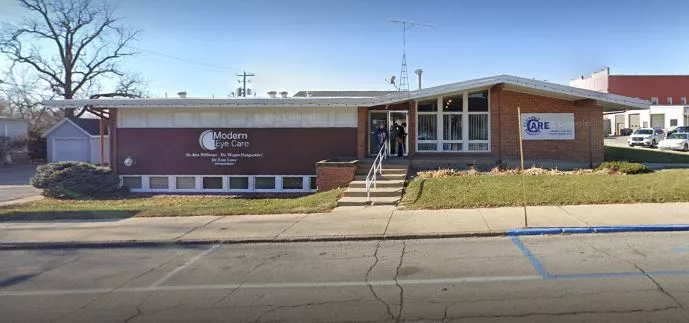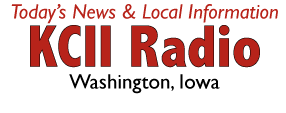
The month of August serves as both National Eye Exam Month and Children’s Eye Health and Safety Month. Doctor Megan Hangartner with Modern Eye Care in Washington joined KCII news to talk about the importance of both topics. For kids, she recommends their first exam be scheduled between six months and a year of age, because kids can’t tell you they aren’t able to see well, and any issues need to be caught in their early stages. There is also a national program called Infantsee through the American Optometric Association for babies six months to a year of age that offers a free exam. Dr. Hangartner discusses with KCII News what happens during a typical exam for both youth and adults.
Hangartner says, “Overall, the similarities are that we’re checking both vision, how the eyes are working together as a team, as well as the general health of the eyes. How we go about those things is slightly different, particularly with checking the vision side of things. Sometimes with the younger kids we use a stronger dilation drop because kids can change focus really quickly. We also rely more on what we are seeing through our various instruments as well as manual techniques like retinoscopy to get an idea of what their prescription is as opposed to them telling us which is better, one or two. With adults, we give them a little bit more control of their prescription, where with kids, you can’t always trust their responses so we take more control over that. In kids what we are looking for is, refractive status, what their prescription is, if they are near-sighted, far-sighted, an astigmatism, if they are within normal ranges, an eye turn or an eye preference. There are certainly congenital things that can affect kids eyes as well and we do the health examination portion of things to look for that.”
Ahead of the exam visit, Dr. Hangartner suggests patients are prepared to bring their insurance information, any pairs of glasses or contacts that they use, a list of any medications they are taking and any other relevant medical information. It is suggested that you visit the office for an in-person exam annually. Between exams, patients should monitor their eyes for any changes in sight, squinting, straining, headaches, blurring, flashing lights, floaters, tearing, or watering which may require a visit outside of the annual schedule. To take control of your eye health and schedule an exam for you or someone else, contact Modern Eye Care in Washington at 319-653-2371.

